1023
Biologist Jared diamond: Why do we like sex and why men
We like the sex. We like to have sex with one person — in most cases. We prefer to do this in solitude, away from friends, relatives and acquaintances – again in most cases.
Most often, couples who have sex after babies, raise them together. We appear with our partners at parties, introduce them to your parents and friends. Saying goodbye in the morning, we return to a favorite in the evenings and do not run in the afternoon in search of another partner. Again in most cases.
For us, this sexual behavior is perfectly normal. But 5500 species of mammals (not to mention other species of flora and fauna) was very surprised to learn about our preferences.
They might even call it immoral. Only humans, chimpanzees and dolphins have sex for pleasure, not for procreation. But even chimpanzees and dolphins don't swear allegiance to one partner and don't make love solitude and prefer to change partners and mate for all to see.
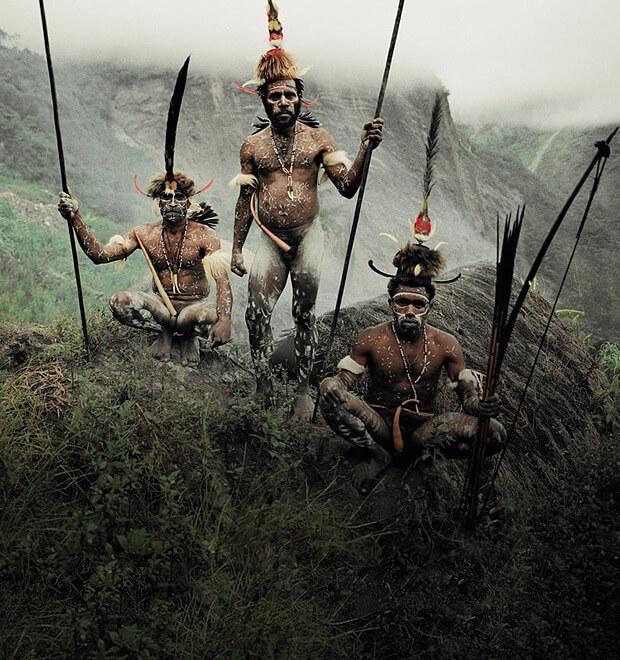
Why is our sexual behavior is so radically different from the behavior of animals? How is it that we are outcasts in a world of sex of animals?
The answer may seem quite obvious: we are evolutionary more advanced than animals, we have it, we use tools. Our sexual behavior that has not prevented people to build houses, to work and to create a civilization, is the result of a more developed brain, the ability to speak and to use these tools.
Imagine women and men, like animals, are extremely dependent on the heat. In this case, as soon as any woman comes to the period of mating for procreation, all men within a radius of a kilometer left their work and ran to dance and fight with other men in an attempt to attract women. Not productive.

Jared diamond — evolutionary biologist, anthropologist and physiologist. In 1997 for his book "Guns, germs and steel" won a Pulitzer prize. In 2005, based on it National Geographic made a documentary.
Evolutionary biologist Jared diamond proposes to take another look at causality: is sex for the sake of entertainment has played an equally important role in the development of human speech and his ability to work, than the brain and bipedalism. Jared diamond spent years in New Guinea, where he studied the behavior of birds, animals and the local population.
The knowledge which he has invested in several popular science books about human development that have become bestsellers in many countries around the world. For the book "Guns, germs and steel", telling about the reasons for the uneven development of civilizations, diamond won the Pulitzer prize in 1997.
Offer You to get acquainted with less known Jared diamond's book "Why we love sex: the evolution of human sexuality", which helps with the unexpected side to look at our sexual behavior. Using comparisons of human behavior with animals, as well as citing good examples from the life of the surviving tribes, diamond tries to understand the causes of our "sexual singularity" and explains why we need men. The book "Why we love sex: the evolution of human sexuality" was published in the AST 2013.
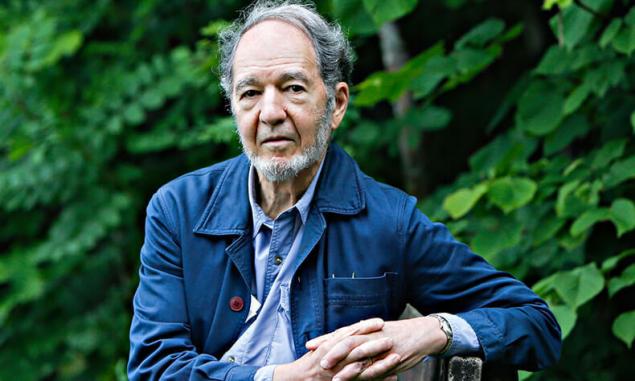
Why need men?
So why need men? This question may sound like a silly joke, but touches on a painful point of our society.
Last year I received a remarkable letter. A Professor of a University located in a very distant city, inviting me to an academic conference. The name of the Professor's said, moreover, that name was impossible to even comprehend a man or a woman.
The conference was supposed to last a whole week, plus the tiring long flights. However, the letter was written extremely gracefully. The conference is organized so well, it can be extremely interesting. After some hesitation I, despite his busy schedule, he accepted the invitation.
All my doubts disappeared as soon as I arrived at the conference, which in every detail met my expectations. Moreover, the organizers put a lot of effort to get me to organize an additional program, including shopping, ornithological observations, banquets and a visit to the archaeological excavations.
The Professor who created this masterpiece of the organization, and the author of the brilliant the invitation letter was a woman. She not only made a very interesting presentation at the conference, not only was a pleasant companion, but also one of the most charming women I ever met in my lifetime.
During one of his shopping trips organized by my lovely hostess, I bought some gifts for my wife. A student assigned to me as a tour guide apparently told about these purchases to my new friend because she mentioned them when we sat next to at the Banquet. And she, to my surprise, said, "My husband never buys me gifts!" She is at the beginning of their married life was giving my husband gifts, but because he never reciprocated, she also stopped doing it.
Then one of the guests sitting on the other side of the table started asking me about my observations of the Paradise birds in New Guinea. I was told that the males of birds of Paradise don't show any care for their offspring, instead they devote all their energy and all their time looking for other females to mate with them. And again, my neighbor, to my surprise, he exclaimed: "Typical men!"
However, then she mentioned that her husband is much better than most men, because he encouraged her passion for science and rejoiced in her successful scientific career. However, most nights he spent with his friends at work, and on the weekends watching TV, without showing the slightest desire to help his wife with housework or spend time with children. After repeated requests, she gave in and hired a housekeeper.
Of course, this is quite a common story, and she stuck in my mind only because this woman was extremely beautiful, sweet and talented and, it would seem, the man who decided to marry her, will try to spend time with her.
And yet the home life of my friendly hostess was much nicer than many other wives. When I started to work in the mountains of New Guinea, I strongly resented the degradation of women. The couple, whom I met during my tours in the jungle looked like this: first came the husband, in whose hands was nothing but a bow and arrow, and trudged behind his wife, bending under the weight of the harvested firewood, fruits and baby. Men's hunting trip, it seems, was started mainly for the opportunity to spend time with friends: a fair amount of the production was eaten by the hunters in the woods. Women were sold, bought or thrown without asking their consent.
Later, when I had my own children, I began to better understand the psychology of men-hunters from New Guinea, accompanying their families on forest trails. Walking with the kids, I had to constantly ensure that they do not fall, not hurt, not lost, so who knows what else can happen to a child. However, the father of the family from New Guinea have to be even more vigilant, because in the jungle, their wives and children lurking a lot more dangers.
It turned out that the man, walking lightly beside heavily Laden with wife, plays an important role as sentinel and protector. His hands must be free, in the event of a sudden attack of men from another tribe he could as quickly as possible to use your bow and arrows. However, hunting trips, men and women trade confuses me still.
So why need men? This question may sound like a silly joke, but touches on a painful point of our society. Women are no longer willing to tolerate the privileges that men have appropriated, and condemn those men who care more about themselves than about my wife and kids. In addition, there is hidden a big theoretical issue for anthropologists.
Terms of use for females and young males of most mammal species are only required to enter the sperm. Immediately after mating, the male throws the female, laying on her a burden to raise, feed and educate their common offspring. However, the males of Homo sapiens are different in that they (usually or at least often) remain after copulation with his partner and their offspring. Anthropologists believe that the increased responsibilities of men greatly contributed to the development of many distinctive features of our species. And here's why.
The economic role of men is different from women's roles in all extant societies of hunters and gatherers (in such societies, all of humanity lived before the rise of agriculture about ten thousand years ago). Men most of the time prey on large animals, whereas women are most of the time, gather edible plants, catch small animals and raise children.
Anthropologists have traditionally considered these widespread role differences as the division of labor, which conforms to the common interests of the family and serves as an example of good cooperation strategies. Men due to a number of objective reasons women are better adapted to chase and kill large animals: they are usually physically stronger than women so they don't have to carry the baby to feed him.
A very similar division of labor exists in modern society today, many women continue to pay the care of children much more time than men do. Today, though hunting has ceased to be primarily a male activity, men continue to produce food for his family, but now they are doing this by working and earning money (as, indeed, most American women). The expression "breadwinner and provider" today reminds us that since ancient times the meaning of male work lies in obtaining food.
The provision of meat is usually regarded as a distinctive responsibility of the men in traditional hunting societies, the analogues of which there are only a few species of mammals such as wolves and hyenas of the African dog. It is usually associated with the other universal features of human societies that distinguish us from our fellow mammals. In particular, the fact that a man and a woman remain connected to the couple and after copulation, and that human children (unlike the monkey) are not themselves able to produce their own food for many years after birth.
This theory is so obvious that it is usually accepted on faith, leads us to two important implications for the hunting. If you count the main aim of hunting production of meat for the hunter family, men need to follow a commercial strategy that will reliably provide them with high meat. Then we have the right to expect that a man on average will yield more meat per unit of time, if it is to hunt large animals and not small. Second, we can assume that hunter will give loot or at least it is a better life for his wife and children, and not to other members of the tribe. How correct are these assumptions?
Surprisingly, these basic to anthropology assumptions are almost never reviewed. But it is not surprising that the first thorough study was conducted by a female anthropologist Kristen Hawkes of the University of Utah. This study was based on statistical data on the amount of food produced by Indians of the nation of Aceh living in Paraguay. Data were collected in conjunction with the Hawkes, Kim hill, Magdalena Hurtado, and Hillard Kaplan. Similar studies Kristen Houk, Nicholas Blurton Jones and James O'connell spent in Tanzania among the hadza people. Consider first the results obtained for ACE.
This tribe from time immemorial to earn their food solely by hunting and gathering, and even started in the 1970-ies to settle in the established Catholic missions and agricultural settlements, they remain most of the time, earning their living in the forest. In full accordance with the usual for traditional societies the division of labor, men h prey on large mammals such as deer and wild pigs, peccaries, and collect wild honey.
Women are beaten out the starch from palm heart, and gather fruits and insect larvae, are busy with the kids. The amount of hunting production fluctuates greatly. If you manage to kill the bakers or to find bort, the hunter brings home so much food that its enough for many members of the tribe, but sometimes — on average one in four of days spent hunting, he comes back empty handed.
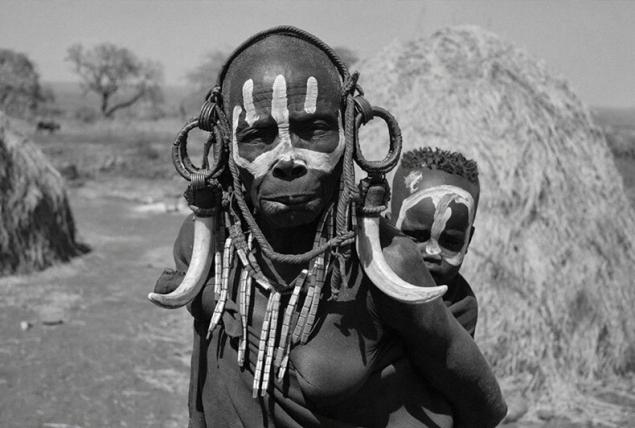
After a successful hunt, the Indian ACE was in no hurry with the loot to his wife and children, and began to generously share the meat with each tribesman was nearby.
Mining women, by contrast, is predictable, and its volume varies little from day to day. Palm trees in the district are many, and the number of mined woman starch depends only on the time spent on this work. A woman can always count on to feed themselves and their children, but she would never be such a find, which you could share with someone else.
The first surprise for Kristen Hawkes and her colleagues were the comparative results of the two mining strategies — male and female. The maximum value, expressed in calories, had, of course, the share of men: if the hunter was carrying and he brought home bakers, it turns out that he one day produced 40 000 calories. However, the average man got in a lucky day 9634 kilocalories, and a woman — 10 356. The average for the period was in men even lower and amounted to 4663 calories — because there were many days when he did nothing is produced.
Thus, in General, men of Aceh would have won by switching to the unheroic "woman's job" for the extraction of starch, instead of enthusiastically chasing wild beasts through the woods. Being physically stronger than women, men if they wanted to, could produce the palm starch more than women.
In his quest for a large, but unreliable rates men h similar to casino players who want at all costs to win a jackpot in a long-term strategy of the players would take a greater benefit by putting money in the Bank and getting a small but predictable percentage.
No less surprising was the researchers another circumstance. After a successful hunt, the Indian ACE was in no hurry with the loot to his wife and children, and began to generously share the meat with each tribesman was nearby. Similarly, they did and produced wild honey. As a result of such generosity, three-quarters of all the products of hunting food goes to anyone, but not to the hunter and not his wife and children.
It is easy to understand why women of Aceh are not fond of hunting. They can't afford to spend time hunting, leaving the house with children and they can't afford it at least once to return home with empty hands: hunger can be bad and on lactation, and pregnancy. But why is it that men are hunters neglect palm starch content with less profitable on average, hunting, and, contrary to popular anthropological notions, not even giving the family all the prey?
This paradox suggests that when men look with such passion given to the hunting of large game, then, apparently, they have the incentive more important than the interests of their wives and children. When Kristen Hawkes described these paradoxes to me, I have the uneasy feeling that their true explanation may be not so elevated and noble, as a sacred myth about the man-the breadwinner, bringing children of the meat. I even felt that I want to defend my fellow men and to find some explanation that would help me to once again believe in the noble role of the male strategy.
My first objection to settlements Kristen Hawkes was to ensure that these calculations were made in calories. Every modern reader who's well-versed in matters of healthy nutrition, knows that not all calories are equal. Perhaps the major goal of hunting is to meet our protein requirements, nutritional value which is higher than the modest carbohydrates, of which mainly consists of palm starch. But men are ACE produce not only protein-rich meat but also honey, which consists of an equally modest carbohydrates, and palm starch.
While men living in the Kalahari desert San people (Bushmen) to hunt a large animal, their women gather and prepare to eat mongongo nuts, very rich in protein. While the new Guinea hunters of the plains spend day after day in search of kangaroos (often unsuccessful), their wives and children in predictable amounts of extracted protein in the form of fish, rats, spiders and larvae. So why do the Bushmen and the Papuans of New Guinea stubbornly refuse to do the same as their wives?
Then I started to think: maybe men h is just extraordinarily bad hunters, an exception among modern hunting tribes? No doubt the Inuit (Eskimos) and Indians living in the polar regions, hunting skills is vital, especially in winter, when they are almost inaccessible no food, except for big game. Men nation hadza (Tanzania) hunting brings in on average more than men h as they hunt in the big game.
However, the new Guinea men, as well as h, will persistently continue to hunt, although their prey is very scarce. On the other hand, successful hadza routinely subjected themselves and their loved ones at great risk because of the 29 days they spent in hunting, 28 are completely barren.
The family of hunter may starve to death, waiting for their husband and father will finally break the jackpot and bringing home the carcass of a giraffe. And in any case not all the meat obtained on hunting the hadza or h, will be given to the family. So for the hunter family, the question of what is more effective in principle — the hunt for big game or gathering, is purely academic. Hunting big game is clearly not the best way to feed the family.
Still trying to justify men, I asked myself a question: whether the generosity with which a hunter shares his prey with others, to be a manifestation of reciprocal altruism? For example, I hope to get a giraffe only once in 29 days, the same hopes and all my friends were hunters.
But we all hunt in different places, and all of our giraffes are likely to be killed on different days. If each of the lucky hunters would be willing to share meat with other hunters and their families, then they often will be able to eat to satiety. However, with this approach, the hunter must share his spoils with the best hunters, which are more likely to receive meat some other day.
In reality, however, successful hunters of the peoples of Aceh and hadza share their loot with anyone who was nearby, no matter what he is hunter good or hopelessly bad. Then the question arises, why a man ACSA or the hadza generally spends time hunting, if in any case he can get a share of the spoils, even if he never got?
And Vice versa — why would he hunt it if all the prey will still have to distribute? Why did the hunter gathers of nuts and catches rats, which he can bring home and that you will not have to share with anyone? Must be all this at least some baser sense, which has escaped my attention while I was trying to find in the actions of men-hunters noble motives.
Another sublime explanation, I thought, may be the following: probably the generosity in the distribution of meat helps the whole tribe, the members of which, apparently, share a need, and prosperity. It is not enough to concentrate on the food only of his family, if other members of the tribe are starving and weakened, will not be able in that case to repel the attack of enemies.
Such an explanation is possible in principle, however, it once again returns us to the original paradox. If the extraction of palm starch, picking fruit or larvae is the best way to provide food for the whole tribe ACE, that men should not spend so much time chasing random bakers.
After a last attempt to find a family heirloom hunting, I wondered about the Association of hunting with men's role as protector. The males of many species, such as songbirds, lions, chimpanzees, a lot of time to dedicate to patrolling the borders of their territory. This patrol serves many purposes: to detect and expel the invading stranger; not to miss the opportunity to invade someone else's territory; to monitor the appearance of predators, which can attack the female or offspring; to know about seasonal changes in the number of different types of food and other resources.
Likewise, there are people-hunters: the pursuit of prey, they both trace and potential danger, and favorable circumstances that can be useful for the whole tribe. In addition, hunting is a good school of martial skills that will be of great use to men to protect their tribe from enemies.
Undoubtedly, the role of hunting is very important. However, the question arises, what specific danger hunters try to trace and whose interests they primarily pursue. In some regions of the world lions and other large predators remain a threat to people, however, the greatest danger of any tribe of hunter-gatherers always comes from men of a rival tribe.
Men in such societies are constantly involved in tribal wars, whose main aim is to kill the warriors of an enemy tribe. Captured women and children of a defeated enemy are either killed or turned into wives and slaves, respectively. In the worst case of hunters, patrolling the borders of its territory, can be considered as the aggressors, pursuing their own selfish genetic interests at the expense of men of a rival tribe.
In the best case they can be considered the protectors of their wives and children, but they protect mainly against other men. Even in this case, the benefits and harms from the patrol activity of men for the rest of the tribe at least about the same.
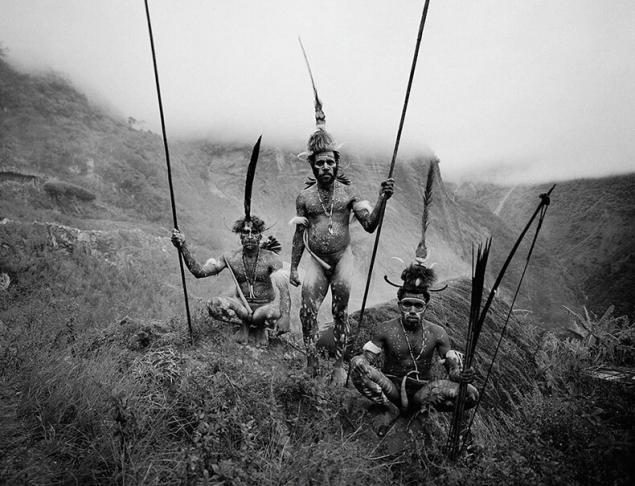
A few minutes of sexual intercourse "on the side" man, the rest of the faithful husband, can double their offspring.
Thus, all five of my attempts to attribute to hunters h some noble cause or reasonable justification, their hunting passions failed. In addition, Kristen Hawkes reminded me of another unpleasant truth: unlike gathering, which involved the wives and children of Aceh, hunting men is not only a means of livelihood, they get from this activity benefit.
Let's start with the fact that h, like other peoples, extramarital sex is not unusual. Dozens of women in Aceh were asked about who they think it is possible the father (i.e., sexual partner about time of conception) their children. It turned out that each of the 66 of these women had an average of 2,1 father. Out of a sample of 28 men women often called as their lovers skillful, not frustrated hunters, they also they believed possible fathers of their children.
To understand the biological significance of adultery, recall Chapter 2, and the features of reproductive biology that we discussed: the facts speak eloquently about the fact that the evolutionary interests of men and women are fundamentally different. Relationship with multiple partners, nothing gives a woman, in terms of the number of transferred genes.
As soon as the woman became pregnant from one man, it is pointless to engage in communication with others: she would not be able to conceive another child for at least the next nine months (and in societies of hunters and gatherers with their long lactation amenorrhea — even several years). On the other hand, a few minutes of sexual intercourse "on the side" man, the rest of the faithful husband, can double their offspring.
Now compare the reproductive outcomes of the two different strategies of hunting, one of which hawks calls the "strategy of the breadwinner" and the other "strategy bouncer". The provider prefers a modest, but predictable gathering: the extraction of palm starch, catching small rodents. Bouncer also preys on large animals, but before he could break the Bank, take a really long time, and the income from the "bouncer" on average, lower than that of "breadwinner". The breadwinner brings home on average more food, although he wouldn't have the extra piece to share with the neighbors. Bouncer on the average brings his wife and children less food, but sometimes he is so much food that he can treat many.
Obviously, if a woman appreciates his genetic success by the number of children she will be able to put on his feet (which is right depends on whether they have the necessary amount of food), then it is better to marry a "breadwinner". But even better, if the neighborhood will be to live the neighbors-"bouncers", which she may sometimes engage in extramarital sexual relations in exchange for meat for themselves and their children. The tribe as a whole loves "bouncers" because they are rare, but generously share their loot.
As for the men-"bouncer" in his genetic strategy has its pros and cons. One of the advantages is the ability to have more children by having sex with a large number of women. Another advantage of the popularity of "bouncer" the tribe: everyone wants to be a neighbor to the man who generously distributes meat, and maybe someone from the grateful neighbors would give him to wife his daughter. In the glory of the father"bouncer" bask and his children, inheriting the sympathies of the tribesmen.
Minus strategy "bouncer" again, that he brings his wife and children on average less food; it means that probably not all legitimate children "bouncer" will survive. And since his wife in his absence, too, can engage in sexual relations with another man, there is a risk that not all her children are his children. So what is better- to be a possible father of many children, as "bouncer", or the guaranteed father of a few, as the "breadwinner"?
To answer this question we will have to do some calculations: how many children in General will be able to grow the wife of "survivor", what is among them the percentage of illegitimate children; how the privileged status of a child whose father is considered a "bouncer", increasing the chances of child survival. Different tribes and in different natural conditions, these figures vary greatly.
When Hawkes praised them for h, then came to the conclusion that in a wide range of their values "bouncers" in General, pass on their genes to a larger number of surviving children than the "breadwinners". Perhaps this is the true purpose of big game hunting, and not in what was traditionally considered the end of the hunt, — the production of meat for his wife and children. So hunters ACSA worry more about their own genetic interests than about the interests of their families.
So, specialization of men hunting and women on gathering cannot be considered as an example of division of labor, allowing couples the best way to meet common interests, and the group as a whole — the most effective use of its workforce. Instead, the way of life of hunters and gatherers demonstrates a classic conflict of interest.
As I mentioned in Chapter 2, that from the point of view of passing on genes is good for men, not necessarily good for women and Vice versa. The couple have common interests, but they also have conflicting interests. For women it is better to marry a "breadwinner", but the man better not to be a "breadwinner".
In the course of biological studies over the last decade revealed many similar conflicts of interest and in animals and humans — not only conflicts between husbands and wives (or between males and females), but also between parents and children, between a pregnant woman and the embryo as well as between children in the family.
Parents transmit their genes, the brothers and sisters of most genes in common. At the same time, competition between the descendants of one pair of the potentially most acute, and kids are always potential rivals to the parents. Numerous studies on animals showed that the nurturing of offspring reduces the average life expectancy of their parents because of increased energy expenditure and other risks.
Cub parents — the opportunity to pass on their genes, but parents can be other similar opportunities. From the point of view of the parent interests, it may be advantageous to leave one of the babies and to direct resources for the nurturing of another, whereas, in the interest of the baby to survive (even by parents). In the animal world as in the human world, such conflicts often lead to the infanticide, the parricide or fratricide.
Biologists explain this conflict by theoretical calculations based on data from genetics and the environment. And we are all family conflicts are familiar from their own experience, without any theories. Conflicts of interest between people closely related by blood or marriage — a common, the most common tragedy of our lives.
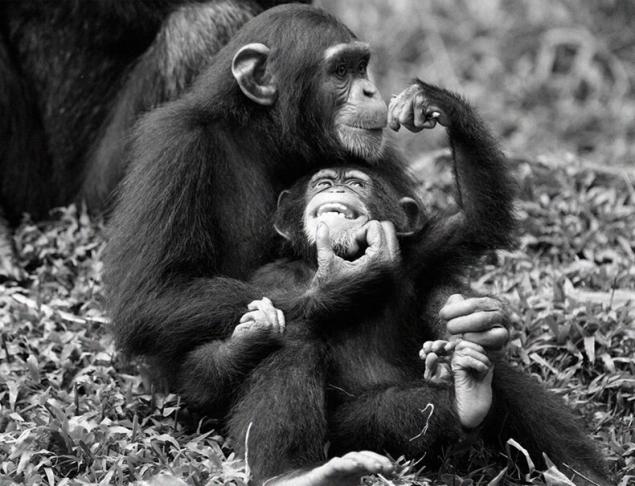
But even among married men, as we know, there are those who cares more about himself than about his wife and children; a man spends a lot of energy, time and money to chasing other women and indulge in other activities, which are considered the attributes of "real man".
How universal such conclusions? After all, Kristen Hawkes and her colleagues studied two ethnic groups of hunter-gatherers Aceh and the hadza. The findings of scientists, it would not hurt to check on other hunter-gatherers. The results can vary greatly from tribe to tribe and even from person to person. My personal experience on the example of New Guinea confirms the correctness of hawks, and even more definitely.
In New Guinea very few large animals, their produce is rarely possible, and the hunters often return home with empty hands. A fair proportion of the prey the hunters themselves eat in the woods, and bringing home, immediately handed out right and left. Hunting in New Guinea is not tenable from the point of view of economic efficiency, but it brings successful hunters obvious status benefits.
But whether the insights Hawkes some relevance to our own society? You've probably already angry because foresaw this question and think you know my answer: say, I believe that American men are for the most part also behave dishonestly. Of course, nothing like I don't want to say. I recognize that many American men, or even most of them (I wonder what kind of majority?) — exemplary men who work hard to earn more, give earned to their families, care about children and not cheat on their wives.
However, some of the Indians said about ACE is true at least for part of our society. Some American men still leave their wives and children. The proportion of divorced men who, in spite of the decisions of the courts neglected their duty, and do not support their own children left with the mother so high that the government has something to do with it. Single parents in America already more than parents living in marriage, and among single women predominate.
But even among married men, as we know, there are those who cares more about himself than about his wife and children; a man spends a lot of energy, time and money to chasing other women and indulge in other activities, which are considered the attributes of "real man". Typical attributes of this style — cars, sports and booze. Figuratively speaking, such a man brings home is not all meat, which produces. Do not claim that men"bouncers" in America more than men-the"breadwinners", but the percentage of "bouncers" can clearly not be discounted.
It's interesting:
How to distinguish healthy love from the sick
How to become a happier person in just one night
Studies of the time budget of working couples showed that working American spends executing his duties (job plus children plus household) twice the time than her husband, and at the same time for the same work, women typically earn less than men. When men were asked to estimate the time that they and their wives devote to children and household chores, it was found that men tend to overestimate the number of their hours and to underestimate the time that is given to children and home their wives.
My impression is that in developed countries such as Australia, South Korea, Germany, France and Poland (only name the countries with which I am more or less familiar), the contribution of men to housework and child-rearing even less. That is why the question "why do we need men?" is relevant today not only for anthropologists but also for our entire society.published
Author: Jared Diamond
Text: Julia Antipova
P. S. And remember, just changing your mind — together we change the world! ©
Source: www.furfur.me/furfur/culture/culture/175195-non-fikshn-nedeli
Most often, couples who have sex after babies, raise them together. We appear with our partners at parties, introduce them to your parents and friends. Saying goodbye in the morning, we return to a favorite in the evenings and do not run in the afternoon in search of another partner. Again in most cases.
For us, this sexual behavior is perfectly normal. But 5500 species of mammals (not to mention other species of flora and fauna) was very surprised to learn about our preferences.
They might even call it immoral. Only humans, chimpanzees and dolphins have sex for pleasure, not for procreation. But even chimpanzees and dolphins don't swear allegiance to one partner and don't make love solitude and prefer to change partners and mate for all to see.

Why is our sexual behavior is so radically different from the behavior of animals? How is it that we are outcasts in a world of sex of animals?
The answer may seem quite obvious: we are evolutionary more advanced than animals, we have it, we use tools. Our sexual behavior that has not prevented people to build houses, to work and to create a civilization, is the result of a more developed brain, the ability to speak and to use these tools.
Imagine women and men, like animals, are extremely dependent on the heat. In this case, as soon as any woman comes to the period of mating for procreation, all men within a radius of a kilometer left their work and ran to dance and fight with other men in an attempt to attract women. Not productive.

Jared diamond — evolutionary biologist, anthropologist and physiologist. In 1997 for his book "Guns, germs and steel" won a Pulitzer prize. In 2005, based on it National Geographic made a documentary.
Evolutionary biologist Jared diamond proposes to take another look at causality: is sex for the sake of entertainment has played an equally important role in the development of human speech and his ability to work, than the brain and bipedalism. Jared diamond spent years in New Guinea, where he studied the behavior of birds, animals and the local population.
The knowledge which he has invested in several popular science books about human development that have become bestsellers in many countries around the world. For the book "Guns, germs and steel", telling about the reasons for the uneven development of civilizations, diamond won the Pulitzer prize in 1997.
Offer You to get acquainted with less known Jared diamond's book "Why we love sex: the evolution of human sexuality", which helps with the unexpected side to look at our sexual behavior. Using comparisons of human behavior with animals, as well as citing good examples from the life of the surviving tribes, diamond tries to understand the causes of our "sexual singularity" and explains why we need men. The book "Why we love sex: the evolution of human sexuality" was published in the AST 2013.

Why need men?
So why need men? This question may sound like a silly joke, but touches on a painful point of our society.
Last year I received a remarkable letter. A Professor of a University located in a very distant city, inviting me to an academic conference. The name of the Professor's said, moreover, that name was impossible to even comprehend a man or a woman.
The conference was supposed to last a whole week, plus the tiring long flights. However, the letter was written extremely gracefully. The conference is organized so well, it can be extremely interesting. After some hesitation I, despite his busy schedule, he accepted the invitation.
All my doubts disappeared as soon as I arrived at the conference, which in every detail met my expectations. Moreover, the organizers put a lot of effort to get me to organize an additional program, including shopping, ornithological observations, banquets and a visit to the archaeological excavations.
The Professor who created this masterpiece of the organization, and the author of the brilliant the invitation letter was a woman. She not only made a very interesting presentation at the conference, not only was a pleasant companion, but also one of the most charming women I ever met in my lifetime.
During one of his shopping trips organized by my lovely hostess, I bought some gifts for my wife. A student assigned to me as a tour guide apparently told about these purchases to my new friend because she mentioned them when we sat next to at the Banquet. And she, to my surprise, said, "My husband never buys me gifts!" She is at the beginning of their married life was giving my husband gifts, but because he never reciprocated, she also stopped doing it.
Then one of the guests sitting on the other side of the table started asking me about my observations of the Paradise birds in New Guinea. I was told that the males of birds of Paradise don't show any care for their offspring, instead they devote all their energy and all their time looking for other females to mate with them. And again, my neighbor, to my surprise, he exclaimed: "Typical men!"
However, then she mentioned that her husband is much better than most men, because he encouraged her passion for science and rejoiced in her successful scientific career. However, most nights he spent with his friends at work, and on the weekends watching TV, without showing the slightest desire to help his wife with housework or spend time with children. After repeated requests, she gave in and hired a housekeeper.
Of course, this is quite a common story, and she stuck in my mind only because this woman was extremely beautiful, sweet and talented and, it would seem, the man who decided to marry her, will try to spend time with her.
And yet the home life of my friendly hostess was much nicer than many other wives. When I started to work in the mountains of New Guinea, I strongly resented the degradation of women. The couple, whom I met during my tours in the jungle looked like this: first came the husband, in whose hands was nothing but a bow and arrow, and trudged behind his wife, bending under the weight of the harvested firewood, fruits and baby. Men's hunting trip, it seems, was started mainly for the opportunity to spend time with friends: a fair amount of the production was eaten by the hunters in the woods. Women were sold, bought or thrown without asking their consent.
Later, when I had my own children, I began to better understand the psychology of men-hunters from New Guinea, accompanying their families on forest trails. Walking with the kids, I had to constantly ensure that they do not fall, not hurt, not lost, so who knows what else can happen to a child. However, the father of the family from New Guinea have to be even more vigilant, because in the jungle, their wives and children lurking a lot more dangers.
It turned out that the man, walking lightly beside heavily Laden with wife, plays an important role as sentinel and protector. His hands must be free, in the event of a sudden attack of men from another tribe he could as quickly as possible to use your bow and arrows. However, hunting trips, men and women trade confuses me still.
So why need men? This question may sound like a silly joke, but touches on a painful point of our society. Women are no longer willing to tolerate the privileges that men have appropriated, and condemn those men who care more about themselves than about my wife and kids. In addition, there is hidden a big theoretical issue for anthropologists.
Terms of use for females and young males of most mammal species are only required to enter the sperm. Immediately after mating, the male throws the female, laying on her a burden to raise, feed and educate their common offspring. However, the males of Homo sapiens are different in that they (usually or at least often) remain after copulation with his partner and their offspring. Anthropologists believe that the increased responsibilities of men greatly contributed to the development of many distinctive features of our species. And here's why.
The economic role of men is different from women's roles in all extant societies of hunters and gatherers (in such societies, all of humanity lived before the rise of agriculture about ten thousand years ago). Men most of the time prey on large animals, whereas women are most of the time, gather edible plants, catch small animals and raise children.
Anthropologists have traditionally considered these widespread role differences as the division of labor, which conforms to the common interests of the family and serves as an example of good cooperation strategies. Men due to a number of objective reasons women are better adapted to chase and kill large animals: they are usually physically stronger than women so they don't have to carry the baby to feed him.
A very similar division of labor exists in modern society today, many women continue to pay the care of children much more time than men do. Today, though hunting has ceased to be primarily a male activity, men continue to produce food for his family, but now they are doing this by working and earning money (as, indeed, most American women). The expression "breadwinner and provider" today reminds us that since ancient times the meaning of male work lies in obtaining food.
The provision of meat is usually regarded as a distinctive responsibility of the men in traditional hunting societies, the analogues of which there are only a few species of mammals such as wolves and hyenas of the African dog. It is usually associated with the other universal features of human societies that distinguish us from our fellow mammals. In particular, the fact that a man and a woman remain connected to the couple and after copulation, and that human children (unlike the monkey) are not themselves able to produce their own food for many years after birth.
This theory is so obvious that it is usually accepted on faith, leads us to two important implications for the hunting. If you count the main aim of hunting production of meat for the hunter family, men need to follow a commercial strategy that will reliably provide them with high meat. Then we have the right to expect that a man on average will yield more meat per unit of time, if it is to hunt large animals and not small. Second, we can assume that hunter will give loot or at least it is a better life for his wife and children, and not to other members of the tribe. How correct are these assumptions?
Surprisingly, these basic to anthropology assumptions are almost never reviewed. But it is not surprising that the first thorough study was conducted by a female anthropologist Kristen Hawkes of the University of Utah. This study was based on statistical data on the amount of food produced by Indians of the nation of Aceh living in Paraguay. Data were collected in conjunction with the Hawkes, Kim hill, Magdalena Hurtado, and Hillard Kaplan. Similar studies Kristen Houk, Nicholas Blurton Jones and James O'connell spent in Tanzania among the hadza people. Consider first the results obtained for ACE.
This tribe from time immemorial to earn their food solely by hunting and gathering, and even started in the 1970-ies to settle in the established Catholic missions and agricultural settlements, they remain most of the time, earning their living in the forest. In full accordance with the usual for traditional societies the division of labor, men h prey on large mammals such as deer and wild pigs, peccaries, and collect wild honey.
Women are beaten out the starch from palm heart, and gather fruits and insect larvae, are busy with the kids. The amount of hunting production fluctuates greatly. If you manage to kill the bakers or to find bort, the hunter brings home so much food that its enough for many members of the tribe, but sometimes — on average one in four of days spent hunting, he comes back empty handed.

After a successful hunt, the Indian ACE was in no hurry with the loot to his wife and children, and began to generously share the meat with each tribesman was nearby.
Mining women, by contrast, is predictable, and its volume varies little from day to day. Palm trees in the district are many, and the number of mined woman starch depends only on the time spent on this work. A woman can always count on to feed themselves and their children, but she would never be such a find, which you could share with someone else.
The first surprise for Kristen Hawkes and her colleagues were the comparative results of the two mining strategies — male and female. The maximum value, expressed in calories, had, of course, the share of men: if the hunter was carrying and he brought home bakers, it turns out that he one day produced 40 000 calories. However, the average man got in a lucky day 9634 kilocalories, and a woman — 10 356. The average for the period was in men even lower and amounted to 4663 calories — because there were many days when he did nothing is produced.
Thus, in General, men of Aceh would have won by switching to the unheroic "woman's job" for the extraction of starch, instead of enthusiastically chasing wild beasts through the woods. Being physically stronger than women, men if they wanted to, could produce the palm starch more than women.
In his quest for a large, but unreliable rates men h similar to casino players who want at all costs to win a jackpot in a long-term strategy of the players would take a greater benefit by putting money in the Bank and getting a small but predictable percentage.
No less surprising was the researchers another circumstance. After a successful hunt, the Indian ACE was in no hurry with the loot to his wife and children, and began to generously share the meat with each tribesman was nearby. Similarly, they did and produced wild honey. As a result of such generosity, three-quarters of all the products of hunting food goes to anyone, but not to the hunter and not his wife and children.
It is easy to understand why women of Aceh are not fond of hunting. They can't afford to spend time hunting, leaving the house with children and they can't afford it at least once to return home with empty hands: hunger can be bad and on lactation, and pregnancy. But why is it that men are hunters neglect palm starch content with less profitable on average, hunting, and, contrary to popular anthropological notions, not even giving the family all the prey?
This paradox suggests that when men look with such passion given to the hunting of large game, then, apparently, they have the incentive more important than the interests of their wives and children. When Kristen Hawkes described these paradoxes to me, I have the uneasy feeling that their true explanation may be not so elevated and noble, as a sacred myth about the man-the breadwinner, bringing children of the meat. I even felt that I want to defend my fellow men and to find some explanation that would help me to once again believe in the noble role of the male strategy.
My first objection to settlements Kristen Hawkes was to ensure that these calculations were made in calories. Every modern reader who's well-versed in matters of healthy nutrition, knows that not all calories are equal. Perhaps the major goal of hunting is to meet our protein requirements, nutritional value which is higher than the modest carbohydrates, of which mainly consists of palm starch. But men are ACE produce not only protein-rich meat but also honey, which consists of an equally modest carbohydrates, and palm starch.
While men living in the Kalahari desert San people (Bushmen) to hunt a large animal, their women gather and prepare to eat mongongo nuts, very rich in protein. While the new Guinea hunters of the plains spend day after day in search of kangaroos (often unsuccessful), their wives and children in predictable amounts of extracted protein in the form of fish, rats, spiders and larvae. So why do the Bushmen and the Papuans of New Guinea stubbornly refuse to do the same as their wives?
Then I started to think: maybe men h is just extraordinarily bad hunters, an exception among modern hunting tribes? No doubt the Inuit (Eskimos) and Indians living in the polar regions, hunting skills is vital, especially in winter, when they are almost inaccessible no food, except for big game. Men nation hadza (Tanzania) hunting brings in on average more than men h as they hunt in the big game.
However, the new Guinea men, as well as h, will persistently continue to hunt, although their prey is very scarce. On the other hand, successful hadza routinely subjected themselves and their loved ones at great risk because of the 29 days they spent in hunting, 28 are completely barren.
The family of hunter may starve to death, waiting for their husband and father will finally break the jackpot and bringing home the carcass of a giraffe. And in any case not all the meat obtained on hunting the hadza or h, will be given to the family. So for the hunter family, the question of what is more effective in principle — the hunt for big game or gathering, is purely academic. Hunting big game is clearly not the best way to feed the family.
Still trying to justify men, I asked myself a question: whether the generosity with which a hunter shares his prey with others, to be a manifestation of reciprocal altruism? For example, I hope to get a giraffe only once in 29 days, the same hopes and all my friends were hunters.
But we all hunt in different places, and all of our giraffes are likely to be killed on different days. If each of the lucky hunters would be willing to share meat with other hunters and their families, then they often will be able to eat to satiety. However, with this approach, the hunter must share his spoils with the best hunters, which are more likely to receive meat some other day.
In reality, however, successful hunters of the peoples of Aceh and hadza share their loot with anyone who was nearby, no matter what he is hunter good or hopelessly bad. Then the question arises, why a man ACSA or the hadza generally spends time hunting, if in any case he can get a share of the spoils, even if he never got?
And Vice versa — why would he hunt it if all the prey will still have to distribute? Why did the hunter gathers of nuts and catches rats, which he can bring home and that you will not have to share with anyone? Must be all this at least some baser sense, which has escaped my attention while I was trying to find in the actions of men-hunters noble motives.
Another sublime explanation, I thought, may be the following: probably the generosity in the distribution of meat helps the whole tribe, the members of which, apparently, share a need, and prosperity. It is not enough to concentrate on the food only of his family, if other members of the tribe are starving and weakened, will not be able in that case to repel the attack of enemies.
Such an explanation is possible in principle, however, it once again returns us to the original paradox. If the extraction of palm starch, picking fruit or larvae is the best way to provide food for the whole tribe ACE, that men should not spend so much time chasing random bakers.
After a last attempt to find a family heirloom hunting, I wondered about the Association of hunting with men's role as protector. The males of many species, such as songbirds, lions, chimpanzees, a lot of time to dedicate to patrolling the borders of their territory. This patrol serves many purposes: to detect and expel the invading stranger; not to miss the opportunity to invade someone else's territory; to monitor the appearance of predators, which can attack the female or offspring; to know about seasonal changes in the number of different types of food and other resources.
Likewise, there are people-hunters: the pursuit of prey, they both trace and potential danger, and favorable circumstances that can be useful for the whole tribe. In addition, hunting is a good school of martial skills that will be of great use to men to protect their tribe from enemies.
Undoubtedly, the role of hunting is very important. However, the question arises, what specific danger hunters try to trace and whose interests they primarily pursue. In some regions of the world lions and other large predators remain a threat to people, however, the greatest danger of any tribe of hunter-gatherers always comes from men of a rival tribe.
Men in such societies are constantly involved in tribal wars, whose main aim is to kill the warriors of an enemy tribe. Captured women and children of a defeated enemy are either killed or turned into wives and slaves, respectively. In the worst case of hunters, patrolling the borders of its territory, can be considered as the aggressors, pursuing their own selfish genetic interests at the expense of men of a rival tribe.
In the best case they can be considered the protectors of their wives and children, but they protect mainly against other men. Even in this case, the benefits and harms from the patrol activity of men for the rest of the tribe at least about the same.

A few minutes of sexual intercourse "on the side" man, the rest of the faithful husband, can double their offspring.
Thus, all five of my attempts to attribute to hunters h some noble cause or reasonable justification, their hunting passions failed. In addition, Kristen Hawkes reminded me of another unpleasant truth: unlike gathering, which involved the wives and children of Aceh, hunting men is not only a means of livelihood, they get from this activity benefit.
Let's start with the fact that h, like other peoples, extramarital sex is not unusual. Dozens of women in Aceh were asked about who they think it is possible the father (i.e., sexual partner about time of conception) their children. It turned out that each of the 66 of these women had an average of 2,1 father. Out of a sample of 28 men women often called as their lovers skillful, not frustrated hunters, they also they believed possible fathers of their children.
To understand the biological significance of adultery, recall Chapter 2, and the features of reproductive biology that we discussed: the facts speak eloquently about the fact that the evolutionary interests of men and women are fundamentally different. Relationship with multiple partners, nothing gives a woman, in terms of the number of transferred genes.
As soon as the woman became pregnant from one man, it is pointless to engage in communication with others: she would not be able to conceive another child for at least the next nine months (and in societies of hunters and gatherers with their long lactation amenorrhea — even several years). On the other hand, a few minutes of sexual intercourse "on the side" man, the rest of the faithful husband, can double their offspring.
Now compare the reproductive outcomes of the two different strategies of hunting, one of which hawks calls the "strategy of the breadwinner" and the other "strategy bouncer". The provider prefers a modest, but predictable gathering: the extraction of palm starch, catching small rodents. Bouncer also preys on large animals, but before he could break the Bank, take a really long time, and the income from the "bouncer" on average, lower than that of "breadwinner". The breadwinner brings home on average more food, although he wouldn't have the extra piece to share with the neighbors. Bouncer on the average brings his wife and children less food, but sometimes he is so much food that he can treat many.
Obviously, if a woman appreciates his genetic success by the number of children she will be able to put on his feet (which is right depends on whether they have the necessary amount of food), then it is better to marry a "breadwinner". But even better, if the neighborhood will be to live the neighbors-"bouncers", which she may sometimes engage in extramarital sexual relations in exchange for meat for themselves and their children. The tribe as a whole loves "bouncers" because they are rare, but generously share their loot.
As for the men-"bouncer" in his genetic strategy has its pros and cons. One of the advantages is the ability to have more children by having sex with a large number of women. Another advantage of the popularity of "bouncer" the tribe: everyone wants to be a neighbor to the man who generously distributes meat, and maybe someone from the grateful neighbors would give him to wife his daughter. In the glory of the father"bouncer" bask and his children, inheriting the sympathies of the tribesmen.
Minus strategy "bouncer" again, that he brings his wife and children on average less food; it means that probably not all legitimate children "bouncer" will survive. And since his wife in his absence, too, can engage in sexual relations with another man, there is a risk that not all her children are his children. So what is better- to be a possible father of many children, as "bouncer", or the guaranteed father of a few, as the "breadwinner"?
To answer this question we will have to do some calculations: how many children in General will be able to grow the wife of "survivor", what is among them the percentage of illegitimate children; how the privileged status of a child whose father is considered a "bouncer", increasing the chances of child survival. Different tribes and in different natural conditions, these figures vary greatly.
When Hawkes praised them for h, then came to the conclusion that in a wide range of their values "bouncers" in General, pass on their genes to a larger number of surviving children than the "breadwinners". Perhaps this is the true purpose of big game hunting, and not in what was traditionally considered the end of the hunt, — the production of meat for his wife and children. So hunters ACSA worry more about their own genetic interests than about the interests of their families.
So, specialization of men hunting and women on gathering cannot be considered as an example of division of labor, allowing couples the best way to meet common interests, and the group as a whole — the most effective use of its workforce. Instead, the way of life of hunters and gatherers demonstrates a classic conflict of interest.
As I mentioned in Chapter 2, that from the point of view of passing on genes is good for men, not necessarily good for women and Vice versa. The couple have common interests, but they also have conflicting interests. For women it is better to marry a "breadwinner", but the man better not to be a "breadwinner".
In the course of biological studies over the last decade revealed many similar conflicts of interest and in animals and humans — not only conflicts between husbands and wives (or between males and females), but also between parents and children, between a pregnant woman and the embryo as well as between children in the family.
Parents transmit their genes, the brothers and sisters of most genes in common. At the same time, competition between the descendants of one pair of the potentially most acute, and kids are always potential rivals to the parents. Numerous studies on animals showed that the nurturing of offspring reduces the average life expectancy of their parents because of increased energy expenditure and other risks.
Cub parents — the opportunity to pass on their genes, but parents can be other similar opportunities. From the point of view of the parent interests, it may be advantageous to leave one of the babies and to direct resources for the nurturing of another, whereas, in the interest of the baby to survive (even by parents). In the animal world as in the human world, such conflicts often lead to the infanticide, the parricide or fratricide.
Biologists explain this conflict by theoretical calculations based on data from genetics and the environment. And we are all family conflicts are familiar from their own experience, without any theories. Conflicts of interest between people closely related by blood or marriage — a common, the most common tragedy of our lives.

But even among married men, as we know, there are those who cares more about himself than about his wife and children; a man spends a lot of energy, time and money to chasing other women and indulge in other activities, which are considered the attributes of "real man".
How universal such conclusions? After all, Kristen Hawkes and her colleagues studied two ethnic groups of hunter-gatherers Aceh and the hadza. The findings of scientists, it would not hurt to check on other hunter-gatherers. The results can vary greatly from tribe to tribe and even from person to person. My personal experience on the example of New Guinea confirms the correctness of hawks, and even more definitely.
In New Guinea very few large animals, their produce is rarely possible, and the hunters often return home with empty hands. A fair proportion of the prey the hunters themselves eat in the woods, and bringing home, immediately handed out right and left. Hunting in New Guinea is not tenable from the point of view of economic efficiency, but it brings successful hunters obvious status benefits.
But whether the insights Hawkes some relevance to our own society? You've probably already angry because foresaw this question and think you know my answer: say, I believe that American men are for the most part also behave dishonestly. Of course, nothing like I don't want to say. I recognize that many American men, or even most of them (I wonder what kind of majority?) — exemplary men who work hard to earn more, give earned to their families, care about children and not cheat on their wives.
However, some of the Indians said about ACE is true at least for part of our society. Some American men still leave their wives and children. The proportion of divorced men who, in spite of the decisions of the courts neglected their duty, and do not support their own children left with the mother so high that the government has something to do with it. Single parents in America already more than parents living in marriage, and among single women predominate.
But even among married men, as we know, there are those who cares more about himself than about his wife and children; a man spends a lot of energy, time and money to chasing other women and indulge in other activities, which are considered the attributes of "real man". Typical attributes of this style — cars, sports and booze. Figuratively speaking, such a man brings home is not all meat, which produces. Do not claim that men"bouncers" in America more than men-the"breadwinners", but the percentage of "bouncers" can clearly not be discounted.
It's interesting:
How to distinguish healthy love from the sick
How to become a happier person in just one night
Studies of the time budget of working couples showed that working American spends executing his duties (job plus children plus household) twice the time than her husband, and at the same time for the same work, women typically earn less than men. When men were asked to estimate the time that they and their wives devote to children and household chores, it was found that men tend to overestimate the number of their hours and to underestimate the time that is given to children and home their wives.
My impression is that in developed countries such as Australia, South Korea, Germany, France and Poland (only name the countries with which I am more or less familiar), the contribution of men to housework and child-rearing even less. That is why the question "why do we need men?" is relevant today not only for anthropologists but also for our entire society.published
Author: Jared Diamond
Text: Julia Antipova
P. S. And remember, just changing your mind — together we change the world! ©
Source: www.furfur.me/furfur/culture/culture/175195-non-fikshn-nedeli























